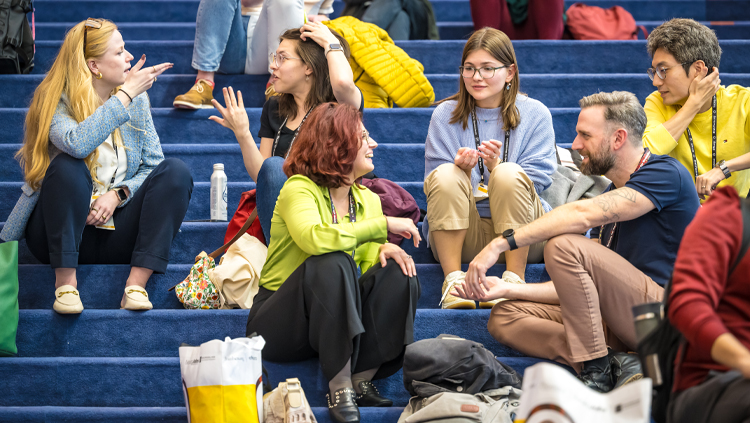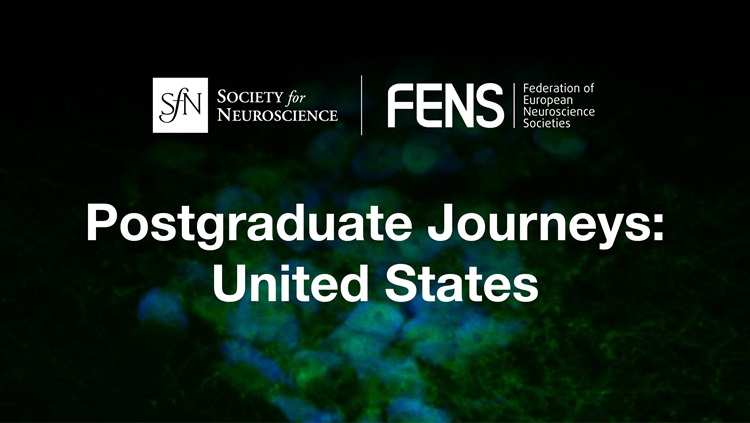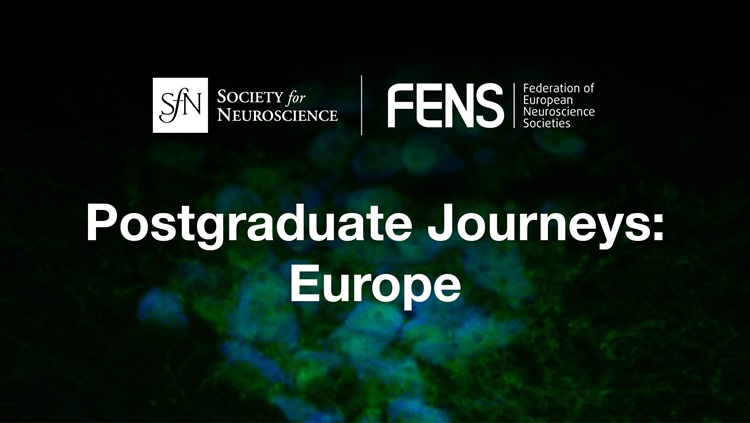My name is Hugo Sánchez Castillo, I did my doctoral studies at the National University of Mexico (UNAM). At the beginning of 2008, I finished my studies, and I was searching for where I would do my postdoctoral stay. At first glance, it seems like an easy task for a new doctor. However, let me tell you that for a Latin Mexican, it was not so easy.
First, you need to be completely clear about the application dates because the calendars of your institution may be different from the institution to which you are applying. You must plan enough time because sometimes the paperwork can be a huge and overwhelming task. After that, you must be sure about the funding (I know we do not like to focus on that as scientists, but that is the way. Also, as a foreign applicant, you must also take care of the language and the hosteling.
In my case, I had taken care of all of this and was ready to apply and continue with my scientific training; however, I failed to consider one thing: society.
Allow me to explain: as a young and brand-new doctor, some people came to me and started to give me pieces of advice and recommendations about the steps that I should take, my principal advisor recommended that I apply in England; my secondary advisor suggested me one institution in Boston; even one of my teachers suggested a Canadian institution.
All this overwhelming information started to affect the idea I had in the beginning that this was a clear process. The days passed and the pressure increased, and I was asked all the time if I had finished the application in some of the suggested places. At this moment, I realized I made the mistake of starting to apply to all laboratories and institutions without evaluating what I could bring to the institution and what the institution would offer me. This was a huge mistake because then I had to add letters from the laboratories and institutions asking me about my plans and backgrounds, but I did not have anything clear yet. Stress suddenly appeared and started to affect me during this period of my life.
There is so much pressure on young scientists that it seems like we don’t have permission to get sick or to doubt anything, even about self-existence (we are a fact, not a theory). In this conundrum, I didn’t like to go out because I was afraid of seeing people who would ask if I had made my decision. I preferred to stay in the lab with the rats and my experiment.
Amid those challenging times, I attended SfN’s annual meeting in 2008 in Washington, D.C. One of the most important researchers in the field that I was involved in at that time came to my poster presentation and started to ask about my work and the implications of my results. After the discussion, he told me that his lab would be presenting their work and invited me to visit them and to continue our discussion.
I went to see the posters and continued the discussion, and it was honestly one of the best sessions that I remember from the meeting. In the end, when I was leaving the doctor told me that it had been a great discussion and that if I was looking for a place for my postdoc, I should have in mind their university. This new invitation was added to the list of options that rounded my head and I was unable to get a clear answer.
I want to stop here to add that for a young scientist, the postdoctoral stay is a unique lifetime decision and is not a superfluous decision made by fashion without complications.
Back in Mexico, I was notified that I should have my final decision soon because the fellowship granted to me required paperwork with the information about where I would be staying, and if I did not give the information my fellowship would be canceled. I felt under pressure, and even for a second, I thought that pseudoscience could help me with an easy way out of my dilemma with the universe making the decision for me.
During that difficult time, a friend of mine came to me and gave me one of the most precious pieces of advice that I have ever received. She asked me about my problems, and I let out everything. I told her about the expectations, the timelines, the demands, the tutors, and the pressure. She listened silently, and at the end, she said that everything seemed in order, but I had missed one of the most important points.
Intrigued, I asked her what it was that I forgot. She looked at me and said that I had forgotten what I wanted for myself. I needed to stop contemplating if the university was good or not, and that start looking into the laboratory and its research interests. Wisely, she told me that the best laboratory for me was the one which has the perspective, theory, and approach that I was studying for years. In the end, I would be the one doing the postdoctoral and alone in a different country, so I need to be convinced and happy with my decision because it was my decision and nobody else’s. At the end of the day, I had to follow my own gut instead of the opinions of those around me.
Finally, I decided to do my postdoctoral studies at Columbia University in New York. The university was researching my major field of interest, had all the facilities I would need, and many of the authors that I was reading at the time were there. And it was New York! I did my stay in the lab where the Spectancy Escalar Theory was born and studied timing behavior. It was the most extraordinary time of my life. Even though Columbia was never one of the universities that I was planning to apply to, it has everything that I was looking for and filled me with knowledge and good friends.
After all of this, I just want to say that the postdoc is not only an opportunity to continue scientific formation, it also is an opportunity to build networks, learn about the culture, and to be better scientist. Choose your postdoc because the laboratory has the topics, methods, and authors that suit you. Don’t go because the people said to, or because somebody told you it would be a good fit for you. Learn as much as you can about the institution, talk with the students there, write to the head of the lab, and lastly, enjoy your postdoc!
Read in Spanish
Mi nombre es Hugo Sánchez Castillo, realicé mis estudios de doctorado en la Universidad Nacional de México (UNAM). A principios de 2008 terminé mis estudios y estaba buscando dónde realizar mi estancia postdoctoral. A primera vista, parece una tarea fácil para un recien Doctorante. Sin embargo, dejenme decirles que para un latino-mexicano no fue tarea fácil.
En primer lugar, debes tener completamente claras las fechas de solicitud porque los calendarios de la institución proveniente pueden ser diferentes a los de la institución a la que estás postulando. Debes planificar con suficiente tiempo porque a veces el papeleo puede ser una tarea enorme y abrumadora. Después de eso, debes estar seguro de la financiación (sé que como científicos no nos gusta centrarnos en eso, pero así es la realidad). Además, como solicitante extranjero, también debes tener cubierto el idioma y alojamiento.
En mi caso particular, ya me había encargado de todo esto y estaba listo para postularme y continuar con mi formación científica; sin embargo, no tuve en cuenta una cosa: la sociedad.
Permítanme explicarles: como recien joven Doctor, algunas personas se acercaron a mí y comenzaron a darme consejos y recomendaciones sobre los pasos que debía seguir, mi asesor principal me recomendó postularme en Inglaterra; mi asesor secundario me sugirió una institución en Boston; incluso uno de mis profesores sugirió una institución canadiense.
Toda esta información se volvio abrumadora y empezó a afectar la idea de un proceso claro y sencillo que tenía al principio. Pasaron los días y la presión aumentó, todo el tiempo me preguntaban si había terminado la aplicar en algunos de los lugares sugeridos. En ese momento me di cuenta de que había cometido la equivocación de empezar a postular a todos los laboratorios e instituciones sin evaluar lo que podía aportar a la institución y lo que esta me ofrecía. Esto fue un gran error, porque luego tuve que agregar cartas de los laboratorios e instituciones preguntándome sobre mis planes y antecedentes, pero aún no tenía nada claro. En este punto el estrés apareció y empezó a afectarme durante este período de mi vida.
Hay tanta presión sobre los jóvenes científicos que parece que no tenemos permiso para enfermarnos o dudar de nada, ni siquiera de la propia existencia (somos un hecho, no una teoría). En esta disyuntiva, no me gustaba salir porque tenía miedo de ver gente que me preguntaba si había tomado mi decisión. Prefería quedarme en el laboratorio con las ratas y mi experimento.
En medio de esos tiempos difíciles, asistí a la reunión anual de SfN en 2008 en Washington, D.C. Uno de los investigadores más importantes en el campo en el que estaba involucrado en ese momento vino a mi presentación de póster y comenzó a preguntar sobre mi trabajo y las implicaciones de mis resultados. Después de la discusión, me dijo que su laboratorio presentaría su trabajo y me invitó a visitarlos y continuar nuestra discusión.
Fui a ver los carteles y continué la discusión, y sinceramente fue una de las mejores sesiones que recuerdo de la reunión. Al final, cuando ya me retiraba, el doctor me dijo que había sido una gran discusión y que si buscaba un lugar para mi posdoctorado debía tener en cuenta su universidad. Esta nueva invitación se sumó a la lista de opciones que rondaban por mi cabeza y no pude obtener una respuesta clara.
Quiero detenerme aquí para añadir que para un joven científico, la estancia postdoctoral es una decisión única en la vida, no es una decisión superflua tomada por moda y sin complicaciones.
De regreso a México me notificaron que pronto tenía que tomar mi decisión final, porque la beca que me otorgaron requería de papeleo que incluía la información de dónde me quedaría, y si no daba estos datos me cancelarían la beca. Me sentí bajo presión, e incluso por un segundo, pensé que la pseudociencia podría ayudarme a encontrar una salida fácil a mi dilema, es decir, que el universo tomara la decisión por mí.
Durante este momento difícil, una amiga mía vino a verme y me dio uno de los consejos más valiosos que jamás haya recibido. Ella me preguntó sobre mis problemas y le dije todo lo que sentía. Le hablé de las expectativas, los plazos, las demandas, los tutores y la presión. Ella escuchó en silencio y al final dijo que todo parecía en orden, pero que se me había pasado por alto uno de los puntos más importantes.
Intrigado, le pregunté qué era lo que había olvidado. Ella me miró y dijo que había olvidado lo que quería para mí. Necesitaba dejar de contemplar si la universidad era buena o no, y empezar a mirar al laboratorio y sus intereses de investigación. Sabiamente me dijo que el mejor laboratorio para mí era aquel que tenía la perspectiva, la teoría y el enfoque que estuve estudiando durante años. Al final sería yo quien haría el posdoctorado y estaría sólo en otro país, así que necesitaba estar convencido y contento con mi decisión, porque esta era mi decisión y no de nadie más. Al final del día, tenía que seguir mis propios instintos en lugar de las opiniones de quienes me rodeaban.
Finalmente decidí realizar mis estudios postdoctorales en la Universidad de Columbia en Nueva York. La universidad estaba investigando mi principal campo de interés, tenía toda la infraestructura que necesitaba y muchos de los autores que estaba estudiando en ese momento estaban allí. Y era Nueva York! Hice mi estancia en el laboratorio donde nació la Teoría de la Espectancia Escalar y estudié las bases de la estimación temporal. Fue el momento más extraordinario de mi vida. Aunque Columbia nunca fue una de las universidades a las que pensaba postular, tenía todo lo que buscaba y me llenó de conocimiento y buenos amigos.
Después de todo esto, sólo quiero decir que el postdoctorado no es sólo una oportunidad para continuar con la formación científica, también es una oportunidad para construir redes, aprender sobre la cultura y ser mejores científicos. Elige tu postdoctorado porque el laboratorio tiene los temas, métodos y autores que más te convengan. No vayas porque la gente te lo dijo o porque alguien te señalo que sería una buena opción para ti. Aprende todo lo que puedas sobre la institución, habla con los estudiantes, escribe al director del laboratorio y, por último ¡disfruta del posdoctorado!
Speaker








